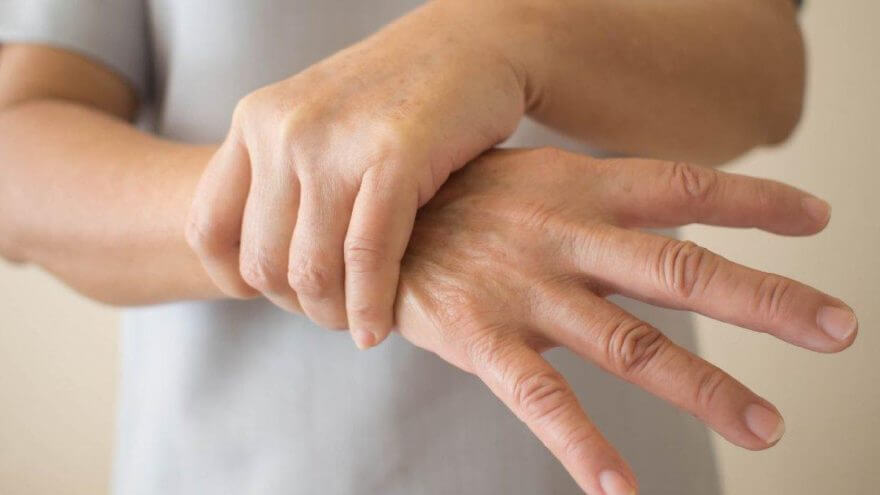Parkinson's Disease in Young People (Early Onset)
Parkinson's is a progressive disease of the central nervous system. Parkinson's disease is caused by the loss of dopamine-producing cells in the brain. Usually in the 60s It occurs at an older age. In the general classification, young Parkinson's patients are those diagnosed before the age of 50.
According to studies conducted abroad, about 4-5 percent of all Parkinson's patients are younger than 50 years of age. Although the disease is usually present in young people It is also noted that this number may be higher because it is not diagnosed...
Symptoms of early onset Parkinson's disease
The symptoms of Parkinson's disease are usually the same regardless of the age at diagnosis. However, not all symptoms appear at once in every patient. It varies from person to person which symptoms occur. Recent research has shown that symptoms other than movement disorders are more common in younger patients than in patients over the age of 60. more likely to present as the first symptom than in patients who are older.
Symptoms of Parkinson's include symptoms other than motor symptoms: loss of smell, constipation, REM behavior disorder, mood disturbances such as depression or anxiety disorders, low blood pressure when standing up, sleep problems, bladder problems, increased saliva production.
Motor symptoms These are often the first symptoms, common in people of all ages. These include: occasional or constant tremors, even when the muscles are relaxed, slowing down in movements, body stiffness, stooped posture, balance problems.

Causes of early-onset Parkinson's disease
It is not entirely clear what causes Parkinson's disease at any age, not just in young patients. Genetic factors, environmental factors or both It is thought that a combination of factors may play a role. Parkinson's occurs when cells are lost in the part of the brain that produces dopamine. Research has been conducted in 20 In 65 percent of Parkinson's patients with Parkinson's disease that started before age 65, a genetic mutation may have caused Parkinson's.
Risk factors for Parkinson's disease
Since it is not known exactly what causes Parkinson's disease, studies have drawn a limited framework. These studies have focused on a number of environmental factors. exposure or having a male population has been shown to confer a higher risk of Parkinson's.
Environmental factors: Living in an area where some organic and chemical wastes are inhaled, exposure to toxic chemicals such as manganese or lead or chemical solvents work, history of head trauma, exposure to agent orange or other herbicides.
Diagnosis of early onset Parkinson's disease
There is no single test to detect Parkinson's disease. Diagnosis is difficult and can take time. Parkinson's is usually diagnosed through a review of your symptoms and physical is diagnosed by a neurologist based on an examination. Blood tests and other imaging tests such as MRI scans do not diagnose Parkinson's disease. However, they can be used to rule out other conditions.
Treatment options for early-onset Parkinson's disease
Parkinson's treatment aims to slow the progression of the disease. The main treatment is the use of medicines containing a substance called levodopa, which is converted into dopamine in the brain. is the use of a brain pacemaker. A brain pacemaker is considered a good option, especially for people with early onset Parkinson's disease. This is because early onset Parkinson's patients are less likely to develop other diseases that can cause complications and live for many years dependent on high doses of medication to take medication. Brain pacemaker treatment will significantly reduce this drug dependency in appropriate patients.
Brain pacing is a surgical procedure in which electrodes are implanted in predetermined areas of the brain. These electrodes are connected to a battery placed under the chest. The battery is programmed to send electrical signals to your brain. Brain pacemaker surgery can improve the tremors, stiffness, rigidity, stiffness, slowness, difficulty walking It is a highly effective method in reducing motor symptoms such as difficulty in the appropriate patient.
As a result, early-onset Parkinson's is a serious chronic disease. Medications and lifestyle changes usually alleviate symptoms. Also, the disease they can slow its progression. Brain pacemaker surgery can be used to control Parkinson's symptoms, especially in younger patients, bringing the disease back to its early years. It is an effective method to reduce the progression and increase the living standards of patients. On the other hand, research into Parkinson's disease is ongoing. There is always hope that more effective drugs will be developed and that eventually there will be a cure.
We have been successfully performing Parkinson's brain pacemaker surgeries for years with a team specialized in brain pacing in our hospital. If you have any questions about Parkinson's disease You can contact us using the information on our contact page to get information and find out if you are a suitable candidate for brain pacemaker surgery.
For information and treatment, you can contact Associate Professor Dr. Ali Yilmaz here.